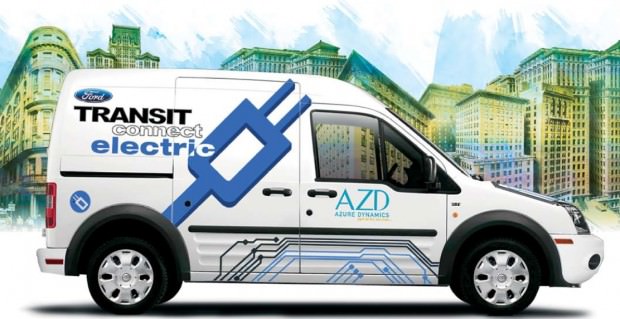DEARBORN, MI – As leaders of the alternative energy transportation industry gathered in Dearborn, Michigan for the Hybrid Truck Users Forum (HTUF) annual meeting, Azure Dynamics and Ford Motor Company announced that Southern California Edison (SCE) is the newest addition to the Ford Transit Connect Electric LEAD customer program with a 20 unit order. SCE is one of the nation’s largest electric utilities and operates one of the world’s most sophisticated fleets of alternative powered vehicles. As a LEAD customer, SCE will take delivery of one of the exclusive supply of the Ford Transit Connect Electric vans to be produced in late 2010 and will receive its remaining 19 vans in 2011.
Southern California Edison’s Transit Connect Electric purchase continues to build on its collaboration with Ford Motor Company to examine the future of plug-in hybrid vehicles as part of a complete vehicle, home and grid energy system.
“At SCE, we’re always looking for innovative strategies to increase fuel efficiency and reduce carbon emissions in our fleet,” said an SCE spokesperson. “As a power provider, we need to fully comprehend the opportunities and obstacles associated with expected increases in PHEV adoption. The Ford Transit Connect Electric is an important and noteworthy product in the on-going development of electric mobility and we are excited to experience it first-hand.”
To create the Ford Transit Connect Electric, Azure integrates its proven Force Drive™ electric powertrain into the Ford Transit Connect and utilizes an advanced lithium-ion battery from Johnson Controls-Saft to achieve a range of up to 80 miles on a single charge. The battery is rechargeable using either a 240-volt or standard 120-volt outlet. Commercial vans generally return to a central location at the end of each driving cycle making for easy overnight recharging.
The Transit Connect Electric is one of five electrified vehicles Ford will introduce over the next three years. The four other vehicles include the Ford Focus Electric passenger car in 2011, two next generation lithium-ion battery hybrids and a plug-in hybrid in 2012.
